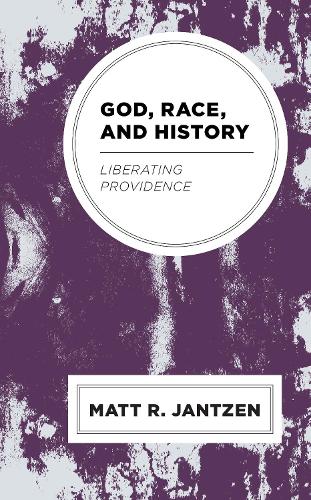
God, Race, and History: Liberating Providence
(Paperback)
Available Formats
Publishing Details
God, Race, and History: Liberating Providence
By (Author) Matt R. Jantzen
Bloomsbury Publishing PLC
Lexington Books
22nd August 2022
United States
Classifications
Professional and Scholarly
Non Fiction
Religious ethics
Social discrimination and social justice
Ethnic groups and multicultural studies
231.5
Physical Properties
Paperback
224
Width 154mm, Height 230mm, Spine 17mm
313g
Description
In crafting racial visions of the modern world, European thinkers appropriated the Christian doctrine of providence, constructing the idea of European humanitys rule over the globe on the model of Gods rule over the universe. As a powerful ordering theory of the relationship between God and creation, time and space, self and other, the doctrine served as an intellectual framework for the theorization of whiteness, as the male European subject replaced Jesus Christ as the human being at the center of world history. Through an analysis of the work of G.W.F. Hegel, Karl Barth, and James H. Cone, God, Race, and History examines this subversion of the Christian doctrine of providence, as well as subsequent attempts within modern Protestant theology to liberate the doctrine from its captivity to whiteness. It then develops a constructive political theology of providence in conversation with Delores S. Williams and M. Shawn Copeland, discerning Jesus Christ at work through the Holy Spirit in the struggles of ordinary, overlooked, and oppressed human creatures to survive and to carve out a flourishing life for themselves, their communities, and their world.
Reviews
In God, Race, and History, Matt R. Jantzen capably explores these two faces of providence, analyzing both how the doctrine has been deployed to support colonialism and racism, and how it can be reclaimed to counter the same.
* International Journal of Systematic Theology *Here lies the real strength of God, Race, and History: it prompts one to pause and consider precisely how best to frame Gods providential actions in the world, and thus to consider the impact of ones own decisions and actions in response.
* International Journal of Systematic Theology *God, Race, and History makes a genuinely novel, and much needed, contribution. This is a creative and worthwhile study that reenergizes and perhaps saves the Reformed doctrine of Providence from the scrapheap of history.
-- Rubn Rosario Rodrguez, Saint Louis UniversityMatt Jantzen not only provides a fresh reading of Barth he makes possible an account of providence that has been absent in much of modern theology. Hopefully, this book will attract a wide readership for no other reason than this is what theological work should look like. Theologians may actually have something to say about the way things are.
-- Stanley Hauerwas, Duke University Divinity SchoolWhere is the Spirit working in the world today With clarity and thoughtfulness, Matt Jantzen explores how three outstanding thinkersHegel, Barth, and Conehave answered this question. Carefully recovering their insights as well as drawing attention to their blind spots, Jantzen leads the reader to his own constructive proposal: that attending to divine providence today requires attunement to how 'the Spirit is giving life to ordinary, overlooked, and oppressed bodies.' Jantzens book is an important read for scholars in systematic theology and political theology.
-- Vincent Lloyd, Villanova UniversityInsightful to the point of groundbreaking, Jantzens book helps us understand the horrors a doctrine of providence can create in the wrong hands. Unfortunately, that doctrine and the vision of history it has spawned has harmed countless peoples. This book places in our hands a precise accounting of the ways racial reasoning was informed by and in turn formed ideas about God working in the world through whiteness. For all those trying to diagnosis and address a Christianity joined to whiteness by means of a sick idea of providence. Here is its antidote.
-- Willie James Jennings, Yale Divinity SchoolAuthor Bio
Matt R. Jantzen is visiting assistant professor of ministry studies and director of the Emmaus Scholars Program at Hope College.
